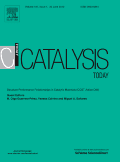
CATALYSIS TODAY
metrics 2024
Advancing the Frontiers of Catalysis Research
Introduction
CATALYSIS TODAY is an esteemed journal published by Elsevier, specializing in the vibrant field of catalysis and its applications in chemical engineering. With the ISSN 0920-5861 and E-ISSN 1873-4308, it has continually contributed valuable research since its inception in 1987 and is set to maintain its influence through 2025. Hailing from the Netherlands, this journal stands out with a notable Q2 quartile ranking in catalysis and a Q1 ranking in miscellaneous chemistry as of 2023, reflecting its rigorous selection of impactful and innovative studies. Its Scopus rankings further substantiate its excellence, highlighting its position in the 89th percentile of general chemistry and 77th percentile in catalysis. CATALYSIS TODAY aims to disseminate cutting-edge findings, fostering exchange among researchers, professionals, and students in the catalysis community. By presenting high-quality research articles, reviews, and case studies, it plays a pivotal role in advancing knowledge and sparking discussions that drive future developments in the field.
Metrics 2024
 1.02
1.02 5.20
5.20 5.00
5.00 240
240Metrics History
Rank 2024
Scopus
IF (Web Of Science)
JCI (Web Of Science)
Quartile History
Similar Journals
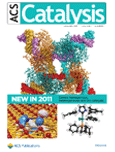
ACS Catalysis
Unleashing Potential in Catalytic ProcessesACS Catalysis, published by the American Chemical Society, stands as a premier journal in the field of catalysis, offering a vital platform for researchers, professionals, and students focused on advancing the science of catalysis and its applications. With an impressive impact factor placing it in the Q1 category for both Catalysis and Chemistry (miscellaneous), this journal has established itself as a leading source of high-quality research findings, currently ranking #21 out of 408 in General Chemistry and #9 out of 68 in Catalysis according to Scopus. Since its inception in 2011, ACS Catalysis has aimed to publish innovative research that addresses the critical challenges in catalytic processes, advancing our understanding of both fundamental and applied aspects of catalysis. With a commitment to promoting open scientific discourse, it serves a vital role for those interested in the latest methodologies, discoveries, and trends in this essential discipline. Based in Washington, DC, ACS Catalysis continues to uphold the highest standards of scholarship and collaboration within the vibrant community of chemists and engineers worldwide.
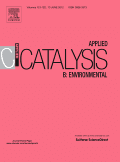
Applied Catalysis B-Environment and Energy
Pioneering breakthroughs in catalysis and environmental technology.Applied Catalysis B-Environment and Energy, published by Elsevier, is a leading journal in the fields of catalysis, environmental science, and process chemistry, with an impressive impact factor that reflects its significance in advancing research and innovation. Established in 1992, this esteemed journal has earned a prestigious status as evidenced by its 2023 category quartiles—ranking in the Q1 category for Catalysis, Environmental Science, and Process Chemistry and Technology. With consistently high rankings in the Scopus database, it holds a remarkable position as #1 in General Environmental Science and #2 in both Process Chemistry and Catalysis, showcasing its profound impact on the respective fields. The journal’s scope encompasses both theoretical and practical research, targeting the pivotal developments in catalysis that promote sustainable practices and energy efficiency. Researchers, professionals, and students alike will find invaluable insights and cutting-edge studies published within its pages, making it an essential resource for those invested in pioneering advancements for a greener, more energy-efficient future.

RESEARCH ON CHEMICAL INTERMEDIATES
Exploring the Nexus of Innovation in Chemical ResearchRESEARCH ON CHEMICAL INTERMEDIATES, published by Springer, is a prestigious academic journal that has been contributing to the field of chemistry since 1984. With an ISSN of 0922-6168 and an E-ISSN of 1568-5675, this journal serves as a vital platform for the dissemination of innovative findings and research advancements related to chemical intermediates. Situated in the Netherlands, it has established a commendable reputation, currently ranked in the Q2 category for miscellaneous chemistry and positioned at #131/408 with a 68th percentile in the Scopus rankings. Though it does not operate under an open-access model, the journal plays a crucial role in connecting scientists, researchers, and practitioners to facilitate a better understanding of synthetic methods, characterizations, and applications of various chemical intermediates. Continually publishing high-quality research until its anticipated convergence in 2024, this journal is an essential resource for those looking to expand their knowledge and contribute to the vibrant community of chemical science.

JOURNAL OF CHEMICAL SCIENCES
Advancing Chemical Knowledge for a Global CommunityThe JOURNAL OF CHEMICAL SCIENCES, published by the Indian Academy of Sciences, is a premier academic journal that serves the global community of chemists and researchers. With an ISSN of 0974-3626 and an E-ISSN of 0973-7103, this journal is pivotal in disseminating high-quality research across diverse areas of chemical sciences. As of 2023, it holds a respectable Q3 ranking in the field of Chemistry (miscellaneous) and ranks #215 out of 408 in General Chemistry according to Scopus, reflecting its commitment to advancing the discipline. Operating in an open-access format, the journal ensures that research findings are readily accessible to a broader audience, fostering collaboration and innovation. Established in 1980 and continuing to evolve, the journal's scope encompasses fundamental and applied chemistry, and aims to bridge gaps between theoretical and practical applications. With a mission to support the scientific community, the JOURNAL OF CHEMICAL SCIENCES is an essential resource for researchers, professionals, and students alike, providing a platform for the exchange of groundbreaking ideas and discoveries.

APPLIED CATALYSIS A-GENERAL
Driving Research Excellence in Applied Catalysis.Applied Catalysis A-General is a premier journal published by Elsevier that serves as a vital resource in the fields of catalysis, process chemistry, and technology. Founded in 1991, this esteemed journal has garnered considerable recognition, reflected in its classification in the Q2 quartile for both catalysis and process chemistry in 2023, as well as its notable rankings within the Scopus database, placing it among the top 20 journals in related disciplines. With an ISSN of 0926-860X and an E-ISSN of 1873-3875, the journal provides a platform for researchers and professionals to disseminate cutting-edge research findings, facilitate knowledge transfer, and foster innovation in the field. While not an open-access journal, it remains accessible through institutional subscriptions, ensuring that critical findings reach a broad audience. The journal's objectives include advancing the understanding of catalytic processes and their applications, making it an indispensable tool for those engaged in this dynamic area of study. Applied Catalysis A-General continues to play a vital role in shaping the future of catalysis, contributing to both scientific progression and practical advancements in various industries.
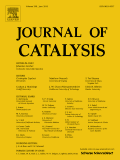
JOURNAL OF CATALYSIS
Unleashing Innovations in Catalytic ScienceJOURNAL OF CATALYSIS, published by Academic Press Inc, Elsevier Science, is a premier peer-reviewed journal that has been at the forefront of research in catalysis since its inception in 1962. With an impressive impact factor and ranking in the top quartiles of both catalysis and physical and theoretical chemistry, the journal is highly regarded, currently holding the distinction of Q1 in both fields. The journal serves as a critical platform for disseminating groundbreaking research, innovative methodologies, and theoretical advancements, making it essential reading for researchers, professionals, and students alike. Although it does not operate under an open-access model, its robust content is accessible through institutional subscriptions, ensuring that significant findings in catalysis and related fields reach a wide audience. With convergence years extending to 2024, JOURNAL OF CATALYSIS continues to shape the discourse in catalysis and chemical engineering, encouraging scholarly exchange and collaboration worldwide.
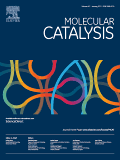
Molecular Catalysis
Elevating the Science of Catalysis for AllMolecular Catalysis, published by Elsevier in Netherlands, is a premier academic journal that explores the cutting-edge domain of catalytic science. With an impressive impact factor and classified in the top quartiles (Q2) in various fields such as Catalysis, Physical and Theoretical Chemistry, and Process Chemistry and Technology, this journal stands as a significant resource for researchers and professionals committed to advancing the understanding of catalysis processes. Since its inception in 2017, it has been pivotal in publishing high-quality, peer-reviewed research that addresses crucial challenges and innovations in molecular catalysis. The journal is fully Open Access, allowing unrestricted access to its articles, thus fostering a wider dissemination of knowledge. Recognized for its rigorous editorial standards, it features works that push the boundaries of current scientific understanding, making it an essential platform for students and academics alike to share and grow in their expertise.

ACS Organic & Inorganic Au
Connecting Researchers for a Sustainable Future in ChemistryACS Organic & Inorganic Au, published by the American Chemical Society, stands as a premier open-access journal dedicated to advancing the fields of organic and inorganic chemistry. Since its inception in 2021, this journal has swiftly risen to prominence, achieving a commendable Q1 classification in Inorganic Chemistry, Organic Chemistry, and Physical and Theoretical Chemistry as of 2023. With an ISSN of 2694-247X, it provides a vital platform for researchers, professionals, and students to disseminate their findings and engage with cutting-edge work across converged disciplines. Operating from its headquarters in Washington, DC, ACS Organic & Inorganic Au is committed to fostering a collaborative research environment, encouraging rigorous peer review, and ensuring the wide accessibility of high-quality scholarly articles. With its open-access model, readers worldwide can freely access and utilize research findings, promoting a global exchange of knowledge crucial for driving innovation in chemistry.
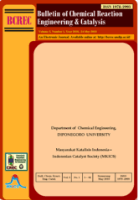
Bulletin of Chemical Reaction Engineering and Catalysis
Empowering Scholars in Chemical Engineering and CatalysisBulletin of Chemical Reaction Engineering and Catalysis is a distinguished open-access journal published by UNIV DIPONEGORO, focusing on pivotal advancements in the fields of chemical reaction engineering and catalysis. Since its inception in 2008, this journal has served as a vital platform for disseminating cutting-edge research, catering to a diverse readership that includes researchers, professionals, and students in chemical engineering and related disciplines. With its dedication to publishing valuable insights, the journal has been indexed in Scopus and boasts respectable rankings across various categories, including Q3 in Chemical Engineering (miscellaneous) and Q4 in Catalysis as of 2023. It continues to foster scholarly dialogue and collaboration by providing an accessible means for contributors to share their findings. Operating from Semarang, Indonesia, this journal underscores its commitment to advancing knowledge in chemical sciences, making it an essential resource for those engaged in the study and application of chemical processes.
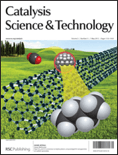
Catalysis Science & Technology
Fostering Collaboration in Catalytic ResearchCatalysis Science & Technology is a leading journal published by the Royal Society of Chemistry, dedicated to advancing the field of catalysis through high-quality research and innovation. Established in 2011, this journal serves as a vital platform for researchers, professionals, and students interested in the latest developments in chemical engineering and catalytic processes. With an impressive Q2 ranking in Catalysis for 2023, the journal is recognized for its significant contributions to the discipline, evidenced by its respectable Scopus Rank of #21 out of 68 in the category and a 69th percentile standing. The journal is committed to disseminating original research that enhances our understanding of catalysis, facilitating knowledge exchange and collaboration within the scientific community. Even without Open Access, Catalysis Science & Technology remains pivotal in shaping innovations that drive forward both academic inquiry and industrial applications, making it an essential resource for anyone involved in this dynamic field.